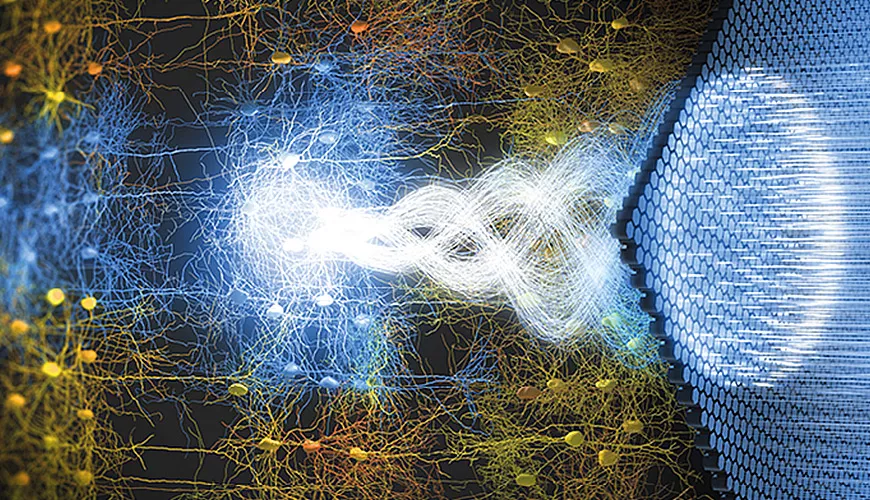NeuroSonoGene
Restoring sight with ultrasound
A sonogenetic brain-machine interface for neurosciences and visual restoration
Features
Project duration
72 months
Start :
End :
Project scale
European project
Allocated budget
7 817 939,00 €

Description
Brain-machine interfaces are classically based on multi-electrode arrays. Optogenetics has revolutionized this ability to control neuronal activity through ectopic opsin expression but its application to large brains remains limited because of tissue light absorption and scattering. Ultrasound waves have been proposed for remote neuromodulation, but this approach has remained restricted to low-frequency excitation, to prevent brain tissue overheating, at the expense of spatial resolution. The expression of mechanosensitive proteins in neurons has recently made it possible to achieve the ultrasound (US) activation of neurons at high US frequencies, an approach named “sonogenetic”.
Using the MscL mechanosensitive ionic channel, we recently provided a first proof of concept in rodents that cortical neurons can be activated in vivo by ultrasounds at a high spatiotemporal resolution and low intensity. Here, we propose to develop an integrated sonogenetic strategy for distant activation/inhibition of neuronal networks by ultrasound waves in large primate brains. The project includes: 1) optimizing and diversifying the sonogenetics actuators for safe neuronal control 2) designing technologies for patterned ultrasound stimulations, 3) demonstrating efficacy and high spatiotemporal resolution of the sonogenetic approach in controlling the primate visual cortex. This project is based on a unique synergistic combination of expertise, with a synthetic biologist in ion channel engineering, a neurobiologist with expertise in vision, and a physicist with expertise in ultrasound technologies. These 3 PIs will be supported by an expert in AAV vector mediated delivery. The project outcomes will be a novel brain-machine interface for investigating neural circuit function even deep within large brains through contactless sonogenetics. This sonogenetic technology will open new avenues for treating neurological dysfunction such as restoring vision in blind patients.
Programme
Horizon Europe
Horizon Europe is the European Union's framework program for research and innovation for the period 2021-2027. Horizon Europe takes over from Horizon 2020, which ends at the end of 2020.
ERC Synergy Grant
The aim is to provide support for a small group of two to four Principal Investigators to jointly address ambitious research problems that could not be addressed by the individual Principal Investigators and their teams working alone. Synergy projects should enable substantial advances at the frontiers of knowledge, stemming, for example, from the cross-fertilization of scientific fields, from new productive lines of enquiry, or new methods and techniques, including unconventional approaches and investigations at the interface between established disciplines. The transformative research funded by Synergy Grants should have the potential of becoming a benchmark on a global scale.
Project team
Partners





